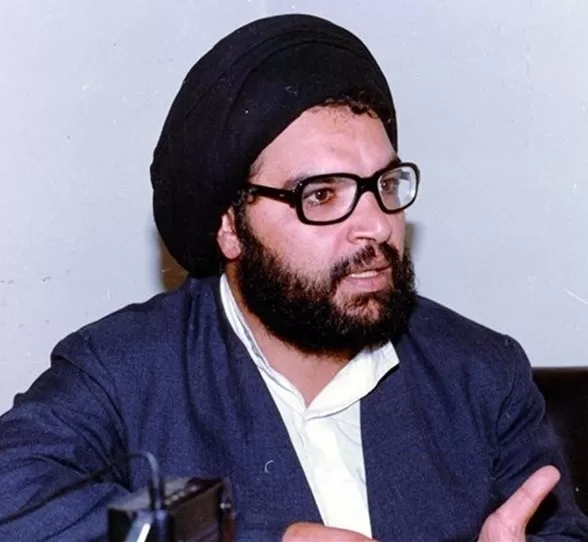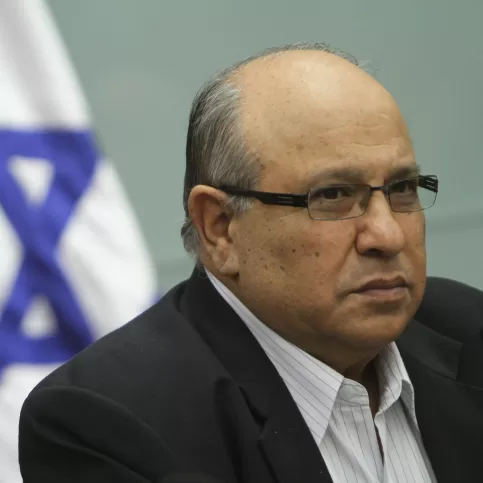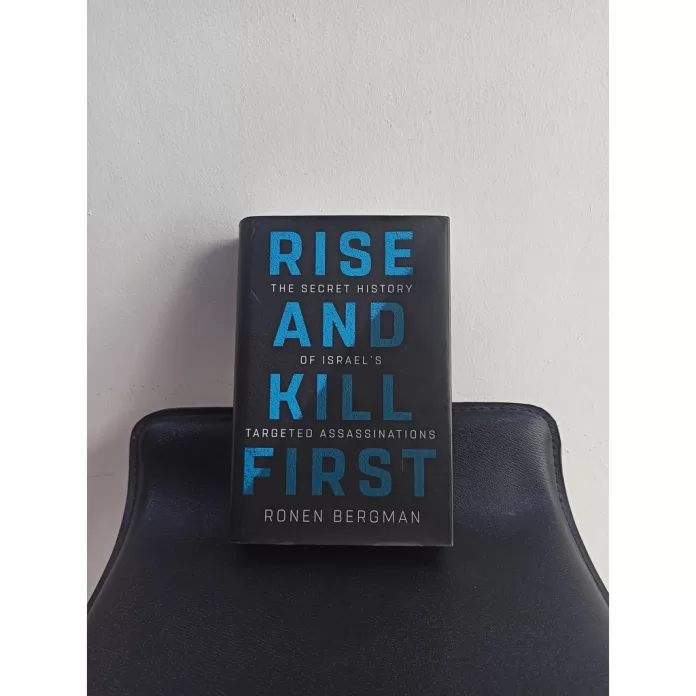On 31 July 2024, Hamas political leader Ismail Haniyah was killed in a bomb blast in Tehran where he had arrived to attend the swearing ceremony of newly elected Iranian President Masoud Pezeshkian. While Israel has not acknowledged but it is understood that Israel conducted the strike. Israel has been conducting targeted assassinations even before the establishment of the state in 1948.
In the last two decades, Israel has conducted assassinations not only in Palestinian territories but in Lebanon, Syria, and Iran. In 2018, Ronen Bergman wrote the history of this policy of the state of Israel. This book was published originally in Hebrew and translated by Ronnie Hope. Ronen has used excellent sources who had front row seats to the horror show of target assassinations. This includes senior intelligence, military and political leaders who were directly involved in gathering intelligence, approving, and executing these missions.
Book catalogues an extensive list of targeted assassinations all over the globe along with the details of the meticulous process of selection of target, collection of intelligence from all sources, approval from political authority and then execution. In 1984, Israel assassinated Hezbollah’s spiritual leader Shaikh Ragheb Harb. In death, he motivated a much larger number of Lebanese Shia to join Hezbollah than he could have done when he was alive. In 1992, Hezbollah Secretary General Abbas Mousavi was assassinated in a precise air strike. His successor Hassan Nasrullah proved to be a greater hardliner and transformed Hezbollah into a credible fighting force.
Mousavi was more cautious, and his primary goal was to enhance Hezbollah’s political and military space inside Lebanon, to increase the position of the Shia while conflict with Israel was secondary and used to serve the primary goal. He was also for closer working relations with Syria but not with Iran. Nasrullah had clashed with Mousavi on these issues as he wanted war against Israel to take priority over closer cooperation with Iran.

After Mousavi’s assassination, Tehran played a significant role in the elevation of Nasrullah as secretary general. He has been secretary general for three decades and has repeatedly paralyzed life in northern Israel. His survival for such a prolonged period against the formidable Israeli security and intelligence apparatus has increased his fame. Israeli intelligence officials acknowledge the fact that with target assassination of an important person, you change the trajectory of history, but it is not necessarily in the better direction and Nasrullah is a good case study.
Armed conflict changes with changing times not only in terms of weapons and tactics but also legal and ethical domains. The issue of target killings today is not limited to Israel, but is global.
However, Israel has been most aggressive in its approach, therefore facing more global scrutiny. It raises two important questions. One is practical and related to the efficacy of the practice. The second is legal and ethical.
If a country sees an imminent threat from a person that he is planning to kill the country’s citizens, but he cannot be captured and tried in the criminal justice system and killing him will prevent the catastrophe and save lives, then the decision becomes a simple one. In this narrow context, the practice is effective and serves the purpose. However, in the larger context, there is debate among security officials. It is understandable if target assassination is viewed as one tool for temporary tactical purposes to save lives while political efforts to manage or end the conflict are under way. On the other hand, if target killing becomes an objective of its own with no link with the strategic landscape, then it is simply a ‘head hunting’ adventure or ‘mowing the lawn’ exercise that can harden attitudes on both sides to a level where any reconciliation becomes extremely difficult.
In this case, this approach can damage national security interests in the long term. The country will end up in a strategic dead end despite countless spectacular tactical victories.
A review of Israel’s experience cautions us that target assassination may contribute to a worse outcome eventually. In the 1980s, Israel thought that if key leaders of Hezbollah were taken out then Israeli security situation will improve. After forty years of ‘head hunting’ with spectacular success, Hezbollah is several folds stronger and with a longer arm to strike inside Israel resulting in evacuation of 150’000 Israelis from the northern part of the country.
In the 1990s, Israeli security establishment concluded that if the top twenty percent of Hamas leadership would be liquidated, the whole structure would collapse. Israel embarked on a relentless campaign of taking out key ideological, operational, and logistic personnel of Hamas. However, in October 2023, Hamas pulled out a strategic coup that changed the trajectory of the conflict to a more horrific violence with a very bleak future for both Israelis and Palestinians.
The legal and ethical debate in society revolves around the fundamental question of when to take a human life without due legal process when conflict is not between two conventional adversaries of nation states governed by laws of war. The second question relates to existing international laws and their applicability to the military and political leaders who make these decisions. Nations not at war have the luxury of taking a high moral ground but nations at war need to bring the bar down to serve security interests.
In the case of Israel, target killing started as a necessity with a very narrow focus but as decision makers faced daily security challenges requiring immediate action as well as reaching a conclusion that conflict with Palestinians cannot be resolved but can be best managed, then its scope widened. Now, it is used for multiple purposes including prevention, revenge for attacks to boost national morale and salvage political difficulties. Ronen’s book provides the details about how this process is played out in Israel.

The real question is not about what others think but what the Israeli State and society needs to ponder about the conflict. Former head of Mossad Meir Dagan was a key architect and direct participant in target assassination programs. Major General Meir Dagan as head of operations directorate of general staff of Israeli Defence Forces set up a secretive unit for assassinations inside Palestinian territories and as head of Mossad, he took the game to another level with global outreach. However, he ultimately came to realize the limits of force.
He was not alone but many Israeli intelligence officials reached the same conclusion (in the 2012 documentary Gatekeepers, six former heads of domestic intelligence agency Shin Bet who devised and executed plans of target assassinations candidly admitted the limits of this approach at strategic level).
It is worth quoting Dagan’s words in 2015 that “I do not want a binational state. I do not want an apartheid state. I do not want to rule over three million Arabs. I do not want us to be hostages of fear, despair, and deadlock”.
He was aware of the dangers of culmination of several factors including constant repression of Palestinians generating more violent response from them coupled with the rise of rightist forces in Israel that would result in internal strife and international isolation. In 2024, Israel has reached that crossroad.
Inter arma enim silent leges (in times of war, the law falls silent). Cicero





